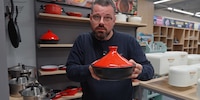
Background information
Are we commercialising pets too much? This is what the animal ethicist says
by Darina Schweizer

We recently ran a story about werewolf syndrome, a neurological condition affecting dogs. There have now been some new developments. Read on to find out which dog chews have been recalled so far, how Switzerland checks these products and what a brand featured in our range had to say about this issue.
Dog owners are on high alert after chewable bones containing cow hide were suspected of triggering neurological symptoms in dogs.
According to reports, it’s still unclear which toxin the products are contaminated with (linked article in German). Some products, however, have been linked to a producer in China. The company may have supplied raw materials such as cow hide to dog treat manufacturers.
«Our chews are manufactured under hygienic conditions. Batches are then tested at random against known parameters such as bacterial infestation, salmonella or heavy metals,» Albert Kerbl GmbH said. The company says not a single similar case has been reported in relation to their cow hide bones.
The composition of dog bones has to be declared correctly, in accordance with legal requirements. However, the products fall solely under the responsibility of the registered Swiss company. In other words, as long as they’re listed in the catalogue or national register of feed materials and only contain approved feed additives, they don’t have to be registered with or tested by Agroscope.
During routine checks on registered Swiss companies, Agroscope’s official feed inspectorate takes random samples for testing. If a company comes under suspicion, it can also take samples of potentially dodgy products. Even so, a company can only be held accountable if non-compliant products are physically present in Switzerland, for example in a warehouse. If a customer buys feed online from abroad, however, it’s not possible to check these products.
I love anything with four legs or roots - especially my shelter cats Jasper and Joy and my collection of succulents. My favourite things to do are stalking around with police dogs and cat coiffeurs on reportages or letting sensitive stories flourish in garden brockis and Japanese gardens.
Interesting facts about products, behind-the-scenes looks at manufacturers and deep-dives on interesting people.
Show all
Background information
by Darina Schweizer

Background information
by Debora Pape

Background information
by Simon Balissat
With an investigation in full swing, product recalls have started trickling in (linked article in German). These include chewable sticks and bones purchased online from the Dutch brand Barkoo. Chrisco, a manufacturer based in Denmark, has also recalled its dog chews from various stores throughout the country as a precaution. Galaxus doesn’t stock either brand’s products.
Galaxus also sells cow hide bones with Chinese origins. More specifically, ones from German-based company Albert Kerbl GmbH. However, responding to an inquiry from us, the company said it worked with a long-standing Chinese producer that’s certified to several quality standards. These include HACCP, ISO22000 and FDA standards (linked pages in German).
But don’t all cow hide bones undergo testing in Switzerland? A media inquiry sent to the division responsible for feed screenings at Agroscope, the federal government’s centre for agricultural research, reveals: it depends.
